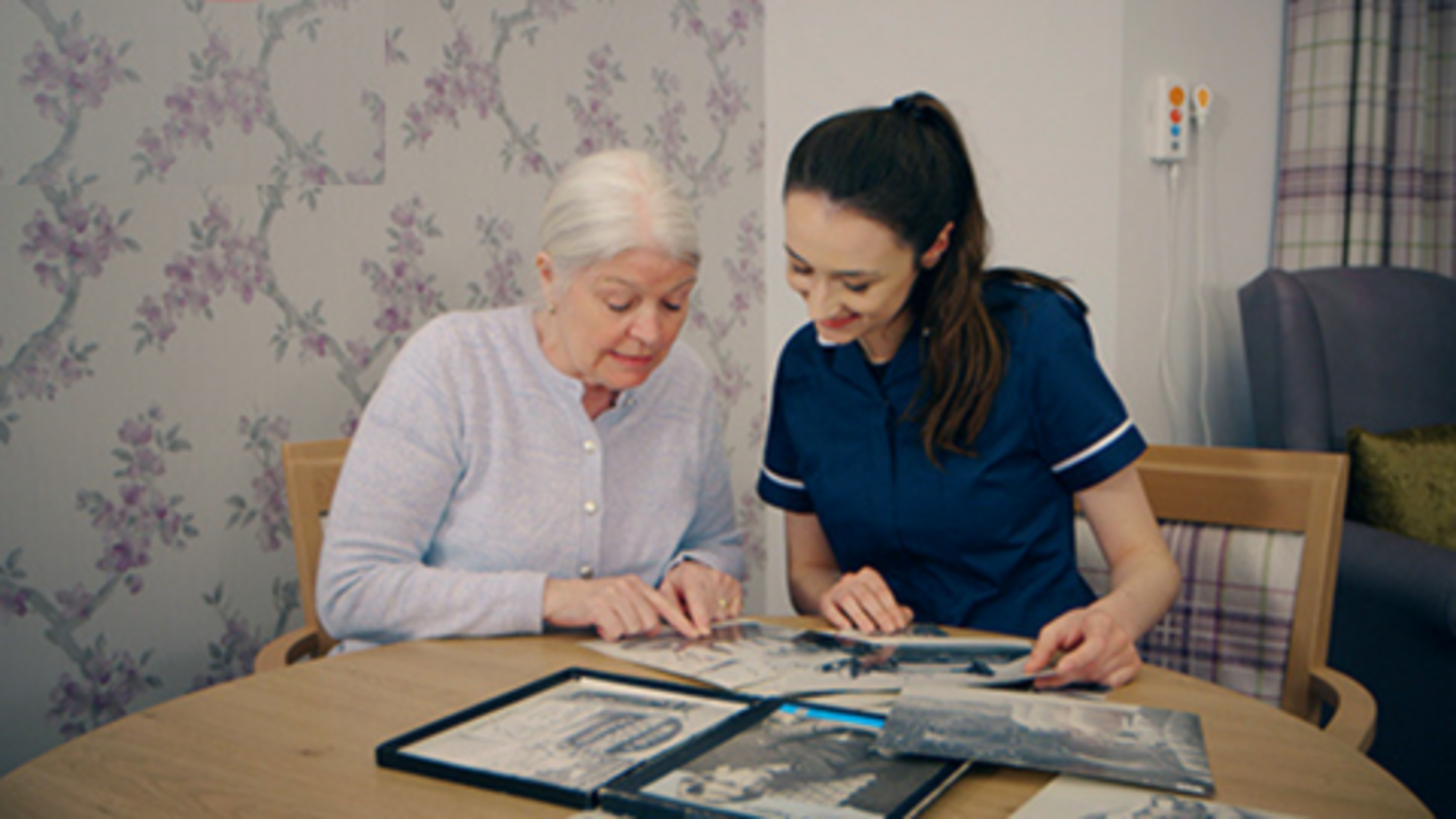
One of the most crucial elements of the care worker’s role is their ability to communicate effectively with the individuals they support and each other.
This course focuses on verbal, non-verbal and behavioural communication. It looks at how we communicate, what tools and resources we have within ourselves and the equipment that can aid communication. It also focuses on the importance of confidentiality and following GDPR.
One of the most crucial elements of the care worker’s role is their ability to communicate effectively with the individuals they support and each other.
This course focuses on verbal, non-verbal and behavioural communication. It looks at how we communicate, what tools and resources we have within ourselves and the equipment that can aid communication. It also focuses on the importance of confidentiality and following GDPR.
Course Consultant
Featured Review

Overview
This online training course has been designed specifically for Care and Support Workers working in a social care setting. It may also be useful to a wider audience of people who would like to know more about Effective Communication.
7 Interactive Video Chapters, Assessment Quiz and a CPD Accredited Certificate
Subjects covered include:
- The Importance of Effective Communication at Work
- Meeting the Communication and Language Needs, Wishes and Preferences of Individuals
- Barriers to Communication
- Principles and Practices Relating to Confidentiality
- Using Appropriate Communication Aids/Technologies
- Understanding the Need for Policies and Legislation regarding the Recording, Storing and Sharing of Information (GDPR)
- Understanding the Need to Record and Store Information Correctly (GDPR)
- Summary
England
Care Certificate Standard 6
NOS: GEN97, SCDHSC0031, SCDHSC00243, SCDLDSS1, SCDCCLD0201
RQF: Communication in care settings (Level 2 Diploma in Care), Promote communication in care settings (Level 3 Diploma in Adult Care, Level 3 Diploma in Healthcare Support)
Wales
All Wales Induction Framework for Health and Social Care (AWIFHSC) Sections 1, 4 & 5
Scotland
The Health and Social Care Standards
Northern Ireland
NISCC’s Induction Standards
Jacqui Arnold, CPsychol, Chief Experience Officer at Milbotix, LinkedIn Profile
Jacqui Arnold is an esteemed course consultant at CareTutor, specializing in a wide range of courses related to care work, including GDPR for Care Workers, Principles of Person-Centred Care, Privacy and Dignity, Role of the Care Worker, Equality, Diversity & Inclusion, Effective Communication, Dementia Care 1: Understanding Dementia, Dementia Care 2: Person Centred Dementia Care, and Medication in the Care Home. With a wealth of experience and expertise in the field, Jacqui brings invaluable insights to these courses.
With over 35 years of experience in social care, Jacqui has worked in various capacities, beginning as a practitioner, and progressing into roles such as Care Home Management, training and development, and consultancy. For 17 years, she served as the Dementia Lead at St Monica Trust, where she honed her expertise in dementia care and developed a deep understanding of the needs of individuals living with dementia.
As a Chartered Occupational Psychologist with a BSc Psychology (Honours) Degree and an MSc in Occupational Psychology (with merit), Jacqui is passionate about applying the principles of occupational psychology to enhance organizational development and improve the quality of care across different sectors. She firmly believes that dementia care requires careful planning and a person-centred approach that values individuals, considers their life history, and recognizes the profound impact of memory and emotions on well-being.
Currently serving as the Chief Experience Officer at Milbotix, Jacqui is dedicated to introducing assistive technology within the care sector. By leveraging innovative technology, she aims to enhance well-being, reduce the time spent on supporting distress, and create opportunities for positive interactions that promote preventive care and overall well-being.
Jacqui’s areas of interest encompass various aspects of service development, policy and practice, culture change, training delivery and evaluation, regulatory compliance, and continuous improvement. She has also been involved in the establishment of Memory Cafes for individuals living with dementia and their caregivers. Additionally, Jacqui offers business/executive coaching and provides support to staff members and teams to ensure the delivery of excellent evidence-based services.
Jacqui’s commitment to enhancing the care sector and her passion for promoting well-being make her an invaluable resource for those seeking to excel in their roles and provide exceptional care to individuals in need.
Jacqui Arnold, BSc (Hons), MSc (Merit)
With over 35 years of experience in social care, Jacqui has worked in various capacities, beginning as a practitioner, and progressing into roles such as Care Home Management, training and development, and consultancy. Jacqui is co-founder and Chief Experience Officer at Milbotix. She is a Chartered Occupational Psychologist and has extensive experience providing care for older people in a range of settings. She was formerly on the board for Skills for Care, and until 2021 held the role of Dementia Lead for a social care charity in Bristol, UK.

